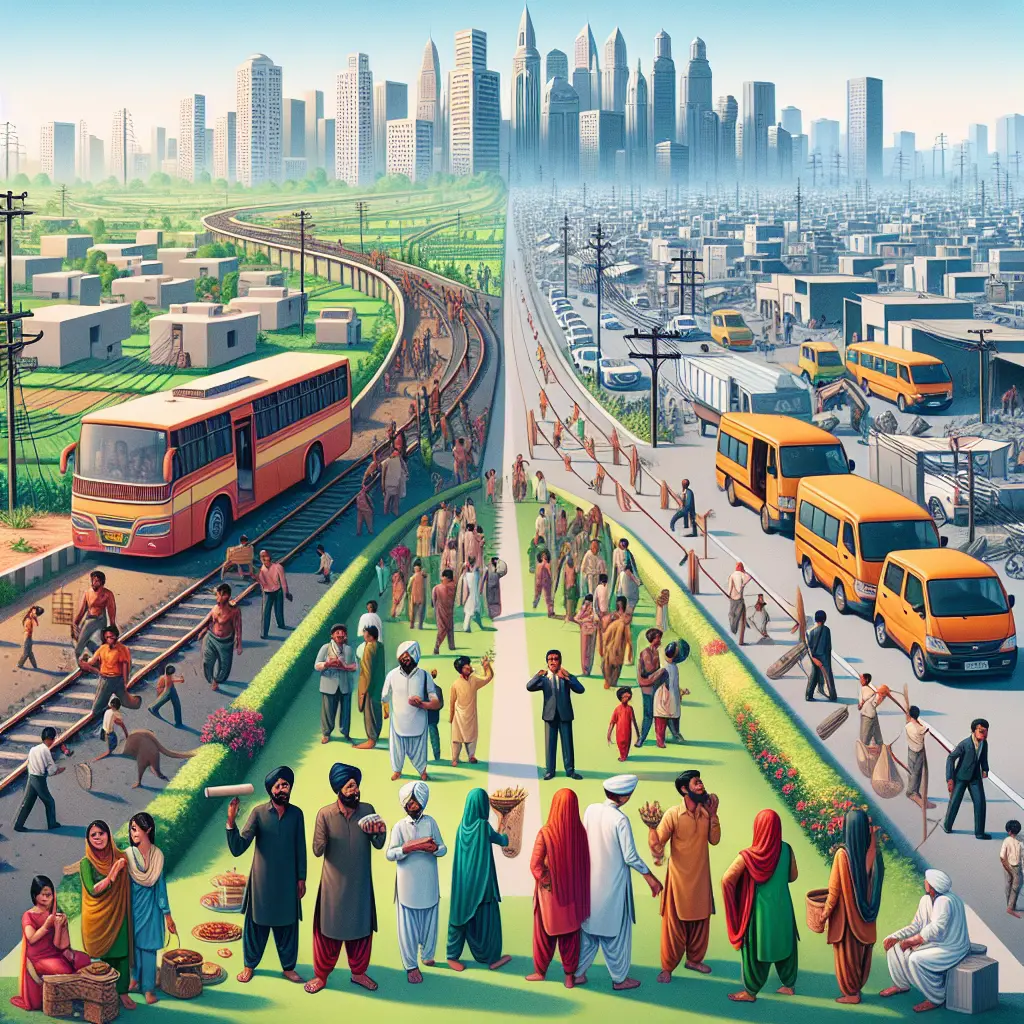
Transforming Punjab's Urban Landscape: A Call for Smart City Development
In the fast-evolving world of urban development, Punjab stands at a critical juncture, facing the urgent need to rejuvenate its smaller cities and expand beyond its limited urban centers.
Punjab, traditionally known for its rich cultural heritage and agricultural prowess, finds itself lagging behind in industrialization efforts. Despite being the fifth most urbanized state in India, following Tamil Nadu, Maharashtra, Gujarat, and Karnataka, the concentration of urban activity in just three major cities presents a significant challenge. This urban centralization restricts economic growth and limits opportunities for the smaller towns that dot the landscape of Punjab.
Challenges Facing Punjab's Urban Policy
- Urban Centralization: The clustering of activities and resources in a few cities leads to overburdened infrastructure and increased migration pressures.
- Lack of Industrialization: The state's limited industrial growth contributes to an economic imbalance, restricting job opportunities in smaller cities.
- Inefficient Urban Policies: Existing policies have not sufficiently addressed the need to invigorate smaller cities or harness the potential of digital technology for urban management.
The Smart City Solution
The Smart City Mission offers a promising pathway to transform Punjab's urban scene. By incorporating smart technologies and data-driven solutions, cities can improve infrastructure, enhance quality of life, and foster sustainable economic growth.
Decentralizing Development: Focusing on smaller cities can help distribute economic activities more evenly across the state, reducing the strain on larger urban centers.
Leveraging Technology: Implementing IoT and AI-based solutions in public transportation, energy management, and waste disposal can significantly improve urban efficiency.
Sustainable Practices: Emphasizing green spaces and renewable energy sources can help create eco-friendly urban environments.
Steps Forward
To address these challenges and seize the opportunities provided by smart city initiatives, Punjab needs a comprehensive strategy:
- Policy Overhaul: Revise urban policies to focus on decentralization and inclusivity, ensuring all cities benefit from development efforts.
- Investment in Infrastructure: Allocate resources for upgrading infrastructure in smaller towns, making them attractive for industries and businesses.
- Community Engagement: Involve local communities in planning processes to ensure that developments meet their needs and aspirations.
In conclusion, revitalizing Punjab's urban policy through smart city initiatives is not merely an option but a necessity for sustainable growth and prosperity. By focusing on technology-driven solutions and equitable development, Punjab can pave the way for a brighter future for all its citizens.
For more insights into this subject, you can read the full article here.
Here's to embracing innovation and inclusivity as we work towards smarter, more livable cities!
Author: Walter Jennings